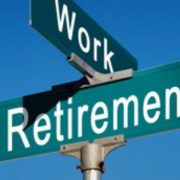Are you adjusting your retirement expectations?
A recent global survey conducted by HSBC[1] found that only 21% of working age Australians believe they will be financially comfortable in retirement!
In fact, the report suggests, of those surveyed,
- 58% believe they will have to work longer and continue working to some extent in retirement
- 75% were willing to defer retirement for two years in order to have a better retirement
- 65% are concerned about declining state pensions, like the Australian Age Pension because of mounting national debt and an ageing population.
This report paints a rather bleak picture of the future, not only for the baby-boomer generation, but also for Generation X (1966 – 1979), and Millennials (1980 – 1997).
The report sets out some practical steps when planning for retirement. While these are more directed towards the Millennials, I believe they apply to all generations:
- Be realistic – start saving earlier, and save more
- Consider different sources of funding – balance savings to spread risks and maximise returns
- Plan for the unexpected – include worst case scenarios when planning
- Embrace new technology – use online planning tools, and seek professional advice.
While on the topic of retirement planning, the Association of Superannuation Funds of Australia has just released its March 2017 Quarter Retirement Standard figures.
The March 2017 figures show a small increase in costs over the previous quarter’s figures. The factors that led to the most recent increases included petrol, medical services and electricity. Offsetting that were savings in international travel and accommodation, and fruit, with a small fall in clothing and footwear reflecting discounting during the post-Christmas sales.
The Retirement Standard budgets for March 2017 are:
| Couple | Single Female | |||
| Comfortable | Modest | Comfortable | Modest | |
| Weekly | $1,150.13 | $668.45 | $837.41 | $465.07 |
| Annual | $59,971 | $34,855 | $43,665 | $24,250 |
So, my tips for those who are considering retirement in the foreseeable future;
- Consider deferring retirement if possible – even if it means continuing to work on a part-time basis for a while
- Understand exactly how much it will cost you to live in retirement – prepare a realistic budget, and account for contingencies (like new hot water system, or roof repairs)
- Know what government benefits you are entitled to
- Seek some really good financial advice from a financial planner experienced in retirement advice
As was highlighted in the HSBC report, starting to save earlier, and saving more, will be the secret to being best placed to enjoy the type of retirement you have always dreamed of.
[1] Reproduced with permission from The Future of Retirement Shifting sands, published in 2017 by HSBC Holdings plc.
Source: Peter Kelly | Centrepoint Alliance


